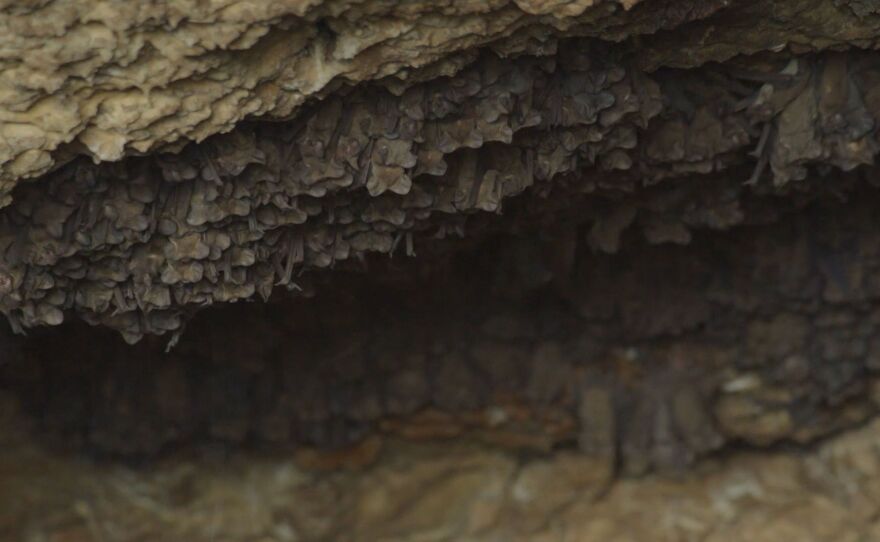Oct. 24 marks the start of International Bat Week. To celebrate, Milwaukee Film will host a screening of The Invisible Mammal at the Oriental Theatre on Sunday, Oct. 26.
The film highlights the importance of bats, along with women scientists combatting white-nose syndrome — a fungal disease that has ravaged bat populations across North America. In Wisconsin, four out of our state's eight bat types are considered threatened species.
"As a filmmaker, what I love about the power of film is to open people's hearts and minds and make them fall in love with bats," says The Invisible Mammal executive producer and Wisconsin native Holly Mosher.
Mosher previously worked on the 2009 documentary Vanishing of the Bees, and she was excited to be part of a project highlighting another essential pollinator.
"I was just so happy to be able to be of service again to a really important ecological story that talks about both a problem that we're facing — and then also looking at solutions," says Mosher.
In addition to pollinating plants and dispersing seeds, bats also play an important role in agriculture. According to the U.S. Fish & Wildlife Service, bats eat enough pests to save the corn industry over $1 billion per year in crop damage and pesticides. As bat populations decline, farmers use more pesticides — leading to higher infant mortality, according to one study in Science.
"I want to help share that news across the Midwest so that people pay attention and do what they can," Mosher says.
From planting bat-friendly gardens, to building bat houses, to participating in bat surveys and other community science events, there are lots of things folks can do to help local bat populations.
"We couldn't do this research without community scientists who come out and participate and are willing to learn about bats and even volunteer long-term," says Amanda Tokuyama, GIS and field data manager at the Urban Ecology Center (UEC) in Milwaukee.
She helps monitor bat populations and cases of white-nose syndrome in southeastern Wisconsin. Many of the center's bat surveys are open to citizen conservationists from the general public.
Auriana Donaldson conducts similar work as conservation manager at the Zoological Society of Milwaukee.
"Everybody can do their part, however they're called to do it," she says. "But first, fall in love with bats. It's never too late."
Mosher, Tokuyama, and Donaldson will be present for Q&A following Sunday's screening of The Invisible Mammal.
Milwaukee Film and the Urban Ecology Center are financial sponsors of WUWM.
_










